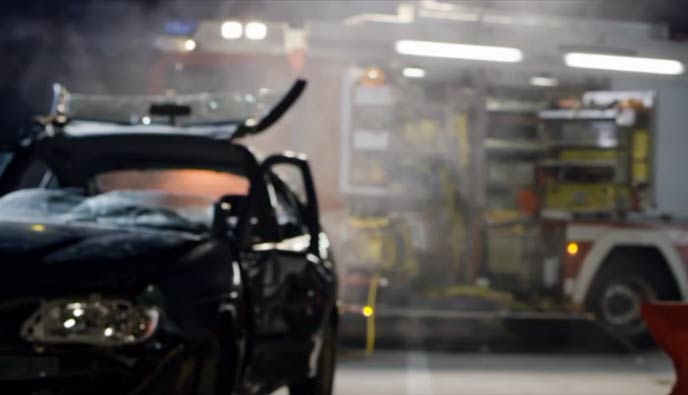How to File a Lawsuit against a Drunk Driver to Get Compensation
Your Personal Injury Lawyer Will Work to Prove the Liability
Even if a drunk driver is found guilty after being prosecuted in a criminal case, the driver will not necessarily be ordered to compensate victims. To get compensation, your accident attorney would have to file a lawsuit that is a civil claim on behalf of you, the victim. The goal is to win compensation for all of your physical, emotional, and financial damages. Your attorney can also seek additional compensation in the form of punitive damages.
If the driver is convicted of a drunk driving offense, it is easier to win the lawsuit, often without even going to court. However, even if the driver is not convicted, the driver can still be held liable for damages, but your attorney will have to prove liability by showing the driver was negligent and at fault for causing the accident.
To win your case, your attorney will:
- Meet with you to discuss details on how the crash happened, who the at-fault parties may be, and what a fair settlement should be.
- Make sure you get the medical treatment you need and that all injuries and treatment are documented for you and any passengers in your vehicle.
- Investigate your case, gathering evidence from the crash scene, surveillance photos and videos, and police and medical reports, and interviewing witnesses and first responders. Of particular significance is whether the driver was arrested for DUI and whether there was a conviction in a criminal case.
- Take care of all legal matters, paperwork, filings, and court appearances on time.
- Hire experts to provide testimony as to how the accident happened, the extent of your damages, and how they affect your life and future.
- Handle communications and negotiations with the insurance company and their lawyers.
- Build your case and take it to court if necessary.
Your attorney also has access to a wide range of experts needed to assess the worth of your injuries to create the most reliable and most authoritative demand package. It is then sent to the negligent defendant’s liability auto insurer.
Most accidents caused by drunk drivers end up in a settlement, as it is extremely challenging for a drunk driver to win in court, especially if they are convicted of any criminal charges.
Even without a criminal conviction, no more than 3% of drunk driving injury claims go to trial, and the defendant’s insurance company settles because it doesn’t want to take its chances in court.
How to Bring a Lawsuit against a Drunk Driver
The first thing to do when bringing a lawsuit is to ascertain that the driver was drunk. According to the Texas Department of Transportation, driving while intoxicated (DWI) is defined as operating a motor vehicle on a public highway with a blood alcohol concentration (BAC) of 0.08% or greater, but you are breaking the law as soon as drugs or alcohol affect your driving. The Texas penal code (Title 10, Chapter 49) states, “A person commits an offense if the person appears in a public place while intoxicated to the degree that the person may endanger the person or another,” and driving while intoxicated is a major cause of endangerment.
After a crash, a driver’s BAC usually is identified through breath, blood, or urine tests conducted by police officers who respond to the scene. Even if a driver’s BAC is lower than 0.08%, the driver may still be convicted of a DWI, as drugs, even if legally prescribed, may also cause loss of control of a vehicle. In addition, anyone under the age of 21 can be charged if they drive a motor vehicle on a public highway after consuming any amount of alcohol.
After an accident, it is important to look for signs of a driver’s impairment, such as:
- Red, glassy eyes and slurred speech, and a smell of alcohol on the breath
- Careless or reckless driving such as speeding, driving too slowly, drifting across lanes, driving on the wrong side of the road, or failing to stop at a stop sign or red light.
If you are able to after an accident, tell the responding officer why you suspect the other driver was impaired. This will give the officer grounds to conduct a field sobriety test which may be useful in your lawsuit.
Proving Negligence in a Drunk Driving Lawsuit
Normally, in a personal injury lawsuit, your Houston injury attorney would have to show the existence of certain legal elements to prove another party (the defendant in the case) was negligent and at fault for causing the accident. These include:
- Duty – The defendant owed you a duty of care to drive safely.
- Breach – The defendant breached this duty (by drunk driving).
- Cause – The breach caused injury to you.
- Harm – The injuries caused you to suffer specific, quantifiable damages.
In Texas, proof of a DWI constitutes negligence per se. This means that if drunk driving was involved in your accident, your attorney only has to show the last two elements — that the defendant caused the harm and damages resulted.
The driver’s negligence is established as a matter of law, and your case would then focus entirely on the losses you have suffered.
Who Can Be Sued in a Drunk Driving Lawsuit?
Depending on the circumstances, there may be multiple parties who contributed to the accident and can be named in the lawsuit in addition to the drunk driver. These parties can include:
- The drunk driver’s employer – Texas law allows employers to be sued for any harm caused by their employees while acting within the scope and course of their employment, such as while making a delivery.
- The store, bar, or restaurant that sold alcohol to the drunk driver – The Texas Dram Shop Act holds bars and restaurants liable for selling alcohol to their drunk customers if the customer then causes an accident that injures or kills another. The person suing the bar must prove that the driver who hit them was intoxicated to the extent of being a danger to themselves or others when they were served alcohol. So, if a server at a bar or restaurant served alcohol to someone he or she “reasonably” knew was intoxicated, the server, bartender, manager, and even the owner of the establishment can be sued for damages in a “third-party lawsuit.”
- A social host who provided alcohol to a non-related minor – If a host served alcohol to a non-related minor who, in turn, caused an accident, the social host may be held liable in Texas.
What Damages Can You Recover in a Drunk Driving Case?
There is a wide range of damage amounts that can be won in a successful drunk driving case, depending on the facts and issues involved. In Texas, you may receive an award for compensatory damages, which cover both your economic damages for monetary expenses, and your non-economic damages that do not have a specific dollar value but negatively affect your life. Compensatory damages include:
- Past and future medical expenses
- Lost wages and diminished future income
- Lost income from being unable to work
- Pain and suffering
- Scarring and disfigurement
- Emotional distress and anguish
- Physical Impairment
- Loss of consortium and enjoyment of life.
In addition, a person injured in a drunk driving accident is more likely to receive “punitive” or “exemplary” damages. These are used to punish the defendant and discourage others from behaving similarly in cases where the defendant acted intentionally or with gross negligence. In most cases, driving while intoxicated constitutes gross negligence.
Call a Drunk Driving Accident Attorney for Help
If a drunk driver has caused the loss of your loved one or serious, life-changing injuries, you have the right to seek a full and fair financial recovery for all of the harm you have suffered. The experienced drunk driving accident attorneys at Terry Bryant Accident & Injury law know what a difficult time this is for you.
When you have us on your side, we will take the burden off you by handling all investigations, negotiations, and legal requirements involved with getting you maximum compensation. You can be comfortable knowing that your case will be handled professionally and will return the best judgment possible.
We offer a free, no-obligation consultation to discuss your case, help you understand your legal options, and determine the best way to move forward. Don’t delay. As with other types of civil actions, there is a statute of limitations for filing a claim. According to Texas law (CPRC TITLE 2 SUBTITLE B CHAPTER 16, SUBCHAPTER A, Sec. 16.003), you generally have two years to file a lawsuit or the courts are likely to refuse to hear your case. (*Always speak directly to an attorney to learn the exact deadlines that apply to your potential claims.)
Call Terry Bryant Accident & Injury Law now at (713) 973-8888 or toll-free 1 (800) 444-5000 to get started while the evidence is fresh.
Attorney Terry Bryant
 Terry Bryant is Board Certified in personal injury trial law, which means his extensive knowledge of the law has been recognized by the Texas Board of Legal Specialization, setting him apart from many other injury attorneys. The 22 years he spent as a Municipal Judge, Spring Valley Village, TX also provides him keen insight into the Texas court system. That experience also helps shape his perspective on personal injury cases and how they might resolve. This unique insight benefits his clients. [ Attorney Bio ]
Terry Bryant is Board Certified in personal injury trial law, which means his extensive knowledge of the law has been recognized by the Texas Board of Legal Specialization, setting him apart from many other injury attorneys. The 22 years he spent as a Municipal Judge, Spring Valley Village, TX also provides him keen insight into the Texas court system. That experience also helps shape his perspective on personal injury cases and how they might resolve. This unique insight benefits his clients. [ Attorney Bio ]




 Terry Bryant is Board Certified in personal injury trial law, which means his extensive knowledge of the law has been recognized by the Texas Board of Legal Specialization, setting him apart from many other injury attorneys. The 22 years he spent as a Municipal Judge, Spring Valley Village, TX also provides him keen insight into the Texas court system. That experience also helps shape his perspective on personal injury cases and how they might resolve. This unique insight benefits his clients. [
Terry Bryant is Board Certified in personal injury trial law, which means his extensive knowledge of the law has been recognized by the Texas Board of Legal Specialization, setting him apart from many other injury attorneys. The 22 years he spent as a Municipal Judge, Spring Valley Village, TX also provides him keen insight into the Texas court system. That experience also helps shape his perspective on personal injury cases and how they might resolve. This unique insight benefits his clients. [ 


